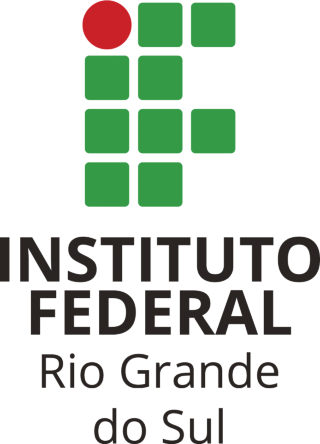Formação profissional no Curso Técnico de Instrumento Musical do IFRS - Campus Porto Alegre e repercussões nas trajetórias de estudantes
| Title: | Formação profissional no Curso Técnico de Instrumento Musical do IFRS - Campus Porto Alegre e repercussões nas trajetórias de estudantes |
| Author: | Pfarrius, Gabriel Silveira |
| Abstract: |
Este trabalho tem o sentido de analisar os impactos da formação no Curso Técnico em Instrumento Musical (CTIMus) do Instituto Federal de Educação, Ciência e Tecnologia do Rio Grande do Sul – Campus Porto Alegre nas trajetórias e projetos de vida dos estudantes. Essa questão central se desdobrou nos objetivos específicos: investigar as concepções que subsidiam a descrição do curso no Catálogo Nacional de Cursos Técnicos, os Projetos Pedagógicos de Curso e o itinerário formativo do CTIMus do IFRS-POA; identificar, através das narrativas dos professores, as contribuições do percurso formativo do CTIMus do IFRS/POA para a concretização dos objetivos dos estudantes; conhecer as trajetórias formativas dos estudantes e seus projetos de vida para compreender como se articulam com o CTIMus; identificar as motivações dos estudantes para cursar o CTIMus/IFRS-POA e a relação destas com as suas trajetórias e projetos de vida musicais e profissionais; desenvolver em uma perspectiva crítica um Produto Educacional (PE), no formato Documentário, composto pelas narrativas dos estudantes e dos professores, evidenciando potencialidades e fragilidades do curso no processo de formação, no âmbito da Educação Profissional e Tecnológica (EPT); aplicar e avaliar o produto com professores e estudantes do CTIMus/IFRS. A abordagem da pesquisa é de natureza qualitativa e no tocante aos objetivos é de cunho exploratório, valendo-se da pesquisa narrativa. O enfoque tem base na Sociologia da Educação (BOURDIEU, 1998), propondo-se a ser interpretativo de narrativas e de experiências/sentidos (BONDIA, 2002) de sujeitos estudados. As principais categorias relacionadas como eixos centrais neste estudo são: Juventudes, Trajetórias Formativas, Projetos de vida e Motivação. Somam-se a essas, bases teóricas e conceituais da EPT: Dualidade estrutural, Trabalho como Princípio Educativo, Educação Integral e Politecnia. Os instrumentos de produção de dados consistiram em um questionário e entrevistas semiestruturadas, aplicados de forma remota. A empiria foi constituída por três grupos de participantes, contando com seis participantes, sendo eles dois egressos, três estudantes e um professor do CTIMus/IFRS. A metodologia de análise de dados levantados nas entrevistas utilizada foi a Análise Textual Discursiva. Os vídeos das entrevistas integraram uma mídia educacional, elaborada no formato de um Documentário, intitulado “A música é só uma semente” e composto pelas narrativas dos interlocutores, com o sentido de sintetizar reflexões e perspectivas sobre a formação no CTIMus, evidenciando seu papel e impactos nas trajetórias de estudantes, bem como as potencialidades e fragilidades oferecidas pelo curso na profissionalização musical. Esse, foi avaliado por um grupo de professores e estudantes do curso investigado. O PE está disponível em repositórios digitais e a produção científica publicada em literatura científica. Os relatos revelaram que os alunos incorporaram capitais, ativaram e reforçaram disposições sociais para música e constituíram habitus que lhe renderam êxitos na busca por oportunidades, destacando-se a influência do CTIMus na motivação dos estudantes para a busca de outras formações e para atuar profissionalmente na música, a partir das vivências do curso. This work aims to analyze the impacts of training in the Technical Course in Musical Instrument (TCIM) of the Federal Institute of Education, Science and Technology of Rio Grande do Sul – Campus Porto Alegre in the trajectories and life projects of the students. This central question unfolded in the specific objectives: to investigate the conceptions that subsidize the description of the course in the National Catalog of Technical Courses, the Pedagogical Course Projects and the training itinerary of TCMI of the IFRS-POA; identify, through the teachers' narratives, the contributions of the TCIM training path of IFRS/POA to the achievement of students' goals; to know the formative trajectories of the students and their life projects to understand how they articulate with the TCIM; identify the motivations of students to attend the TCIM and their relationship with their musical and professional trajectories and life projects; identify the students' motivations to attend the TCIM and their relationship with their musical and professional life trajectories and projects; to develop, in a critical perspective, an educational product, in the Documentary format, composed of the narratives of students and teachers, highlighting the strengths and weaknesses of the course in the training process, within the scope of Vocational and Technological Education; apply and evaluate the product with TCIM teachers and students. The research approach is of a qualitative nature and in terms of objectives it is exploratory, making use of narrative research. The focus is based on the Sociology of Education (BOURDIEU, 1998), proposing to be interpretive of narratives and experiences/meanings (BONDIA, 2002) of the subjects studied. The main categories listed as central axes in this study are: Youth, Formative trajectories, Life Projects and Motivation. Added to these are the theoretical and conceptual bases of the EPT: Structural Duality, Work as an Educational Principle, Integral Education and Polytechnics. The data production instruments consisted of a questionnaire and semistructured interviews, applied remotely. The empirical study consisted of three groups of participants, with six participants, two graduates, three students and a professor from TCIM. The data analysis methodology used in the interviews was the Discursive Textual Analysis. The videos of the interviews were part of an educational media, prepared in the format of a Documentary, entitled “A música é só uma semente” and composed by the narratives of the interlocutors, in order to synthesize reflections and perspectives on training at TCIM, highlighting their role and impacts on student trajectories, as well as the strengths and weaknesses offered by the course in musical professionalization. This was evaluated by a group of professors and students of the investigated course. The product is available in digital repositories, and the scientific production published in scientific literature. The reports revealed that students incorporated capital, activated and reinforced social dispositions for music and constituted habitus that gave them success in the search for opportunities, highlighting the influence of TCIM in motivating students to seek other training and to act professionally. in music, from the experiences of the course. |
| URI: | https://dspace.ifrs.edu.br/xmlui/handle/123456789/763 |
| Date: | 2022 |
Files in this item
| Files | Size | Format | View | Description |
|---|---|---|---|---|
| 123456789763.pdf | 962.1Kb |
View/ |
Texto completo |



